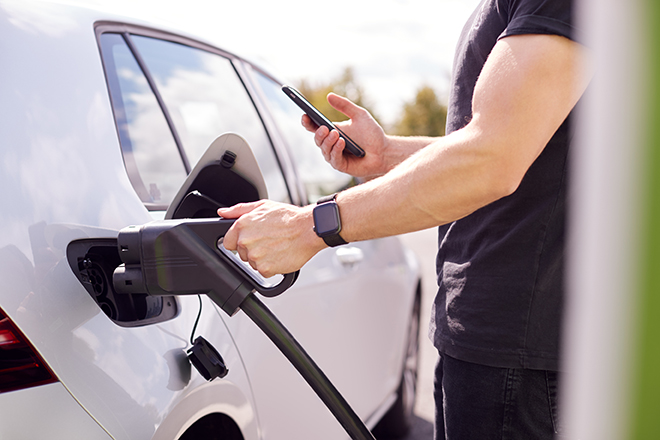Rideshare vehicles are widely believed to have larger carbon footprints than personal vehicles, as they rack up additional mileage on the way to and from passenger pickups. Thus, it stands to reason that, like trucks and other heavy-duty vehicles, electrifying them would deliver greater emissions reductions than electrifying personal passenger cars.
According to a new study from the University of California, Davis, the difference is substantial: replacing a gas-powered ride-hailing vehicle with an EV could deliver as much as triple the emissions reduction that electrifying a personal vehicle would.
According to the study, “Emissions benefits of electric vehicles in Uber and Lyft ride-hailing services,” published in the journal Nature Energy, ride-hailing vehicles travel more miles than personal vehicles, and typically charge during the day, when more solar energy is available on the grid.
“Electric vehicles are beneficial, and that benefit is larger if you’re traveling more miles and charging from renewable sources during the day,” said lead author Alan Jenn, a researcher at the Institute of Transportation Studies at UC Davis.
The study is based on Uber and Lyft data on travel behavior and public charging use in California between early 2017 through late 2018, a time when the use of ride-hailing services was growing rapidly.
The study’s analysis found that concerns about limited range and long charging times are overstated—the researchers found no significant difference in service quality between EVs and legacy vehicles. They were also surprised to find that, although ride-hailing services represent a tiny fraction of total traffic, they used more than 30 percent of the energy provided by public charging stations—about 60 times more public energy than that used by private vehicles.
Both Uber and Lyft have announced some halting steps to electrify their fleets (most of which consist of driver-owned vehicles). Lyft recently drew some eye-rolls with a timid proposal to make all its vehicles electric a decade from now.
Jenn noted that the study’s data was collected in pre-pandemic times. “With COVID-19, it’s hard to make predictions about how services like Uber and Lyft continue,” he said. “That said, California passed legislation in 2018 that compels transportation networking companies to become cleaner, and part of that involves electrification. So there is currently regulatory pressure for these companies to use cleaner vehicles regardless of the pandemic situation.”
Source: UC Davis


















































